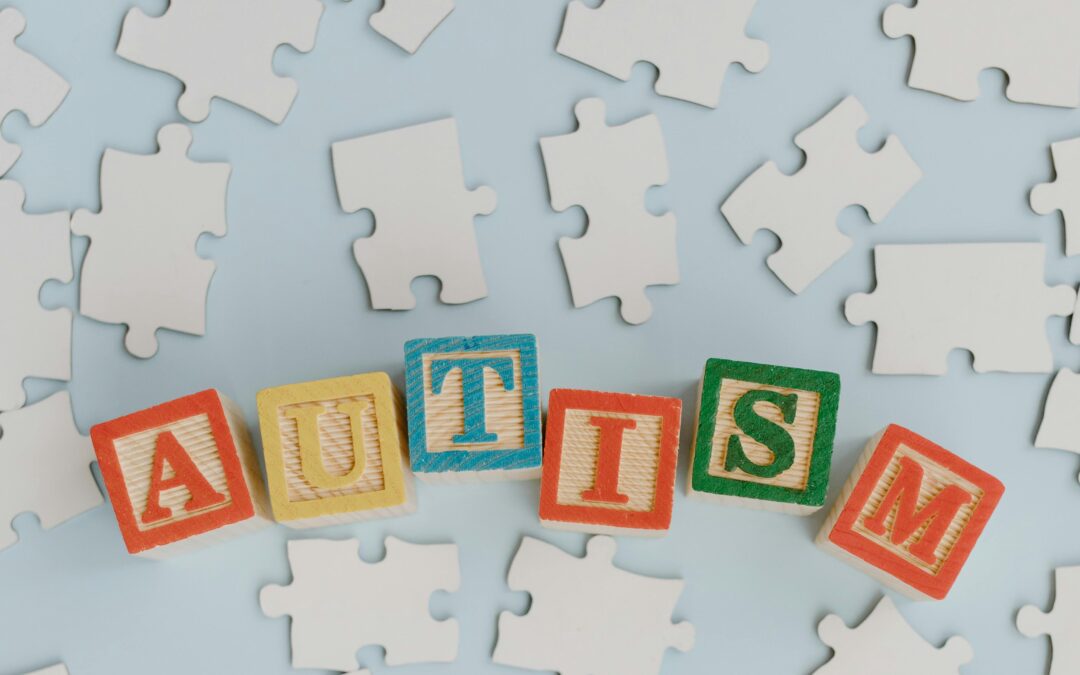April is Autism Awareness Month, a time to shed light on a condition that affects many families worldwide. Autism Spectrum Disorder (ASD), a lifelong neurodevelopmental disorder, usually presents itself within the first three years of life. Individuals on the autism spectrum have a wide range of strengths and challenges.
Symptoms of Autism in Children
Autism affects social interaction, communication skills, and behavior. As a spectrum disorder, it manifests differently in each individual. Common symptoms include:
- Delayed language, movement, or cognitive skills
- Sensory sensitivities or aversions
- Repetitive movements like pacing, flapping, and spinning
- Rigid and/or perseverative thinking patterns
- Difficulty with eye contact
- Hyperactive, impulsive, or inattentive behavior
- Gastrointestinal issues, for example, constipation
- Anxiety, stress, or excessive worry
- Obsessive interests
- Has unusual reactions to the way things sound, smell, taste, look, or feel
- Easily upset by minor changes in routines
- Lack of fear or more fear than expected
- Difficulty making and keeping friends
Types of Autism Treatment
While there’s no cure for autism, various treatments can help manage symptoms effectively. These include:
Behavioral: For example, ABA (Applied Behavior Analysis) encourages desired behaviors while discouraging undesired behaviors to improve a variety of skills.
Developmental: This can include Speech and Language Therapy, Occupational Therapy, Sensory Integration Therapy, and Physical Therapy
Educational: These occur in a classroom setting. One educational approach is the Treatment and Education of Autistic and Related Communication-Handicapped Children (TEACCH) approach. TEACCH is based on the idea that people with autism thrive on consistency and visual learning. It provides teachers with ways to adjust the classroom structure and improve academic and other outcomes. For example, daily routines can be written or drawn and placed in clear sight. Boundaries can be set around learning stations. Verbal instructions can be complemented with visual instructions or physical demonstrations.
Pharmacological: While there are no medications that treat the core symptoms of ASD, there are medications that can treat co-occurring symptoms allowing people with ASD to function better. Medications can be used to treat symptoms like high-energy, poor focus, anxiety, depression, and sleep problems.
Social-Relational: Social-relational treatments focus on improving social skills and building emotional bonds. Some social-relational approaches involve parents or peer mentors.
Psychological: Cognitive-Behavior Therapy (CBT) is one psychological approach that can help individuals with ASD learn how their thoughts, feelings, and behaviors connect and affect how they react to others and situations.
Alternative Treatments: These are often used to complement more traditional approaches. They can include things like music therapy, animal therapy, arts therapy, mindfulness, or relaxation therapies and dietary interventions, among others.
Getting a Diagnosis
There are no medical tests for autism. Pediatrician visits may reveal developmental delays, prompting further evaluation by a developmental pediatrician or psychologist trained in autism testing. An accurate diagnosis is essential for creating tailored educational and treatment plans.
Favorite Resources for Autism Support
- CDC: “Treatment and Intervention Services for Autism Spectrum Disorder”
- Autism Speaks: Therapy and Support for Autism
- Utah Parent Center: Autism
Raising awareness and understanding about autism is crucial for supporting individuals and families affected by this condition. By recognizing the signs, seeking appropriate interventions, and fostering acceptance, we can create a more inclusive society for everyone.
Who is Mentallus?
Mentallus is a leader in creating pathways for parents with children struggling with behavioral or mental health issues. Our mission is simple yet profound: to empower parents with the tools and resources they need to confidently navigate their children’s mental health journeys. We want you to feel supported, heard, and equipped to face whatever comes your way.
Have questions or are looking for more tips? Let’s chat! We offer FREE consultations that you can schedule below.

